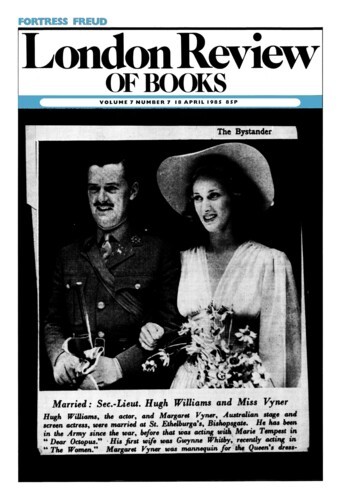A Talented Past
Linda Colley, 23 April 1987
This anatomy of the membership of the House of Commons is the sixth such work to issue from the History of Parliament Trust. Previous volumes in the series have covered the years 1509 to 1603, 1660 to 1690, and 1715 to 1790; and if the Treasury and private donors continue to be kind, the identity, interests and influence of MPs in this country will be chronicled from 1386 to 1832 and possibly (and desirably) up to the present century. Devotion to the legislature on this heroic scale has a predictable appeal for the more serious-minded of its personnel. The project was championed in the past by Harold Macmillan and is protected now by the enthusiasm of men such as Roy Jenkins and Robert Rhodes James. But why should those of us who are excluded from this desirable club at Westminster want such an extended work of collective biography?




